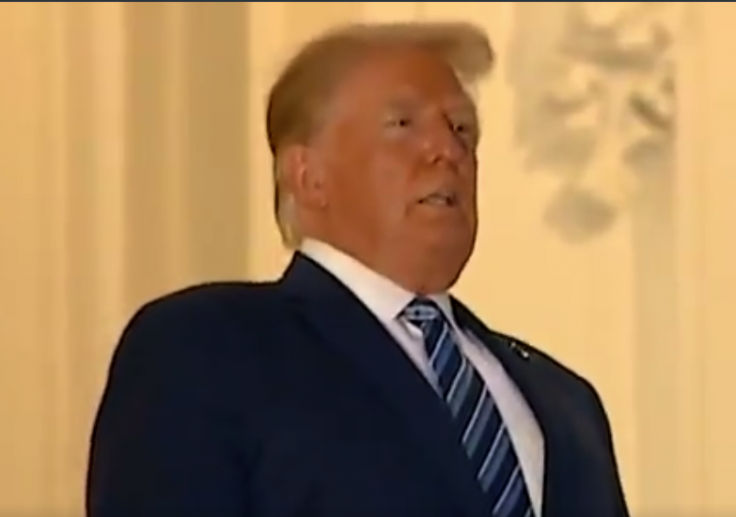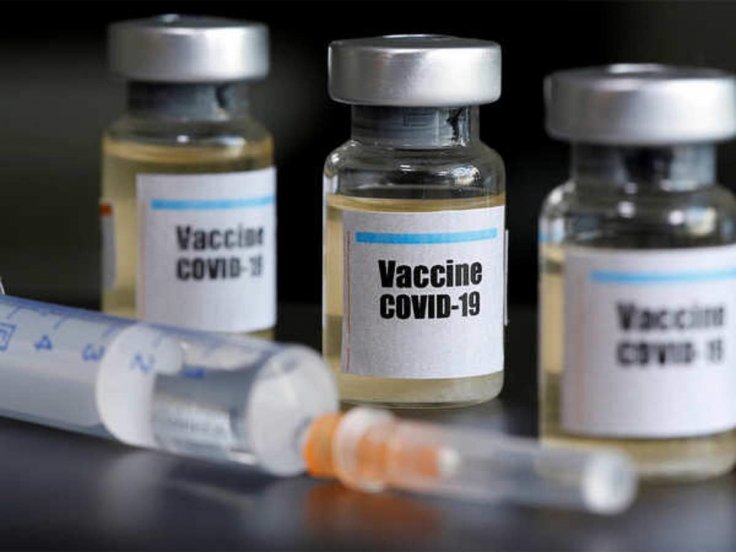The antibody cocktail from Regeneron Pharmaceuticals that was administered to President Donald Trump for his Covid-19 infection last Friday as a "cure" for the deadly virus was developed using cells from aborted fetus, a practice that Trump and his supporters have repeatedly denounced over the years. Instead, in a video he tweeted on Thursday Trump said, "It was incredible the impact it had."
What he didn't say is that the treatment was developed using technology his administration has worked for four years to ban. Needless to say, Regeneron's potential treatment for Covid-19 has a lot to do with abortion politics, and the science of using human tissue to test and to make medicines.
What is Regeneron's Covid-19 Drug?

Last week, Trump received Regeneron's cocktail of monoclonal antibodies. It was an 8-gram infusion under a "compassionate use" exemption. On Wednesday, in a nearly five-minute video posted on Twitter, the president lauded its effects, calling it "the key."
However, what most don't know is the how the drug is made. The cocktail of monoclonal antibodies an experimental therapeutic for coronavirus which is still in the trial phase and has not been approved by the Food and Drug Administration (FDA) yet.
The stem cells used to develop the drug are known as HEK-293T cells, a line of cells used in laboratories. These cells were originally derived from an embryonic kidney after an elective abortion performed in the Netherlands in the 1970s. The cells "were used in testing the antibody candidates' ability to neutralize the virus" and helped researchers "determine the 'best' two antibodies, which now make up the REGN-COV2 cocktail," a Regeneron spokesperson said.
Regeneron said that there is no fetal tissue present in the final product. But even then Regeneron's therapy indirectly relied on tissue taken from an abortion. Remdesivir, an antiviral drug from Gilead Sceineces, which was also given to Trump, too was tested using the HEK 293T cells.
Treatment Takes Political Turn

Trump and his aides have been consistently trying to restrict abortion cases. That was also one of the most important agendas while nominating the conservative Catholic Judge Amy Coney Barrett to the Supreme Court last month. In fact, Trump's base is strongly against abortion rights and his administration acted quickly to reverse many Obama-era policies.
Last year, Trump said that the White House would no longer support long-standing funding for medical research by government scientists using human fetal tissue, a move that countered advice from physicians and researchers. The decision was seen as a major victory for anti-abortion rights groups.
It is likely that Trump didn't know about the details and back story of Regeneron's antibody cocktail but this is somewhat like a conflict of interest. The anti-abortion movement is one of Trump's most enthusiastic bases of support. In fact, the 2020 Republican party platform vehemently opposes embryonic stem cell research, and calls for a ban on federal funding for embryonic stem cell research.
Interestingly, anti-abortion groups, which generally oppose the use of fetal tissue in pharmaceutical research, did not raise issue with the therapeutics used and promoted by the president.
That said scientists have used this batch of cells, called the HEK-293 cell line, for close to 50 years for all types of experiments and will continue to do so. The federal government cannot stop private industry from using fetal tissue and Regeneron supports its use.
Regeneron calls the mixture REGN-COV2 as of now. It will get a brand name if it gets emergency use authorization from the US FDA. The company applied for that on Wednesday.








